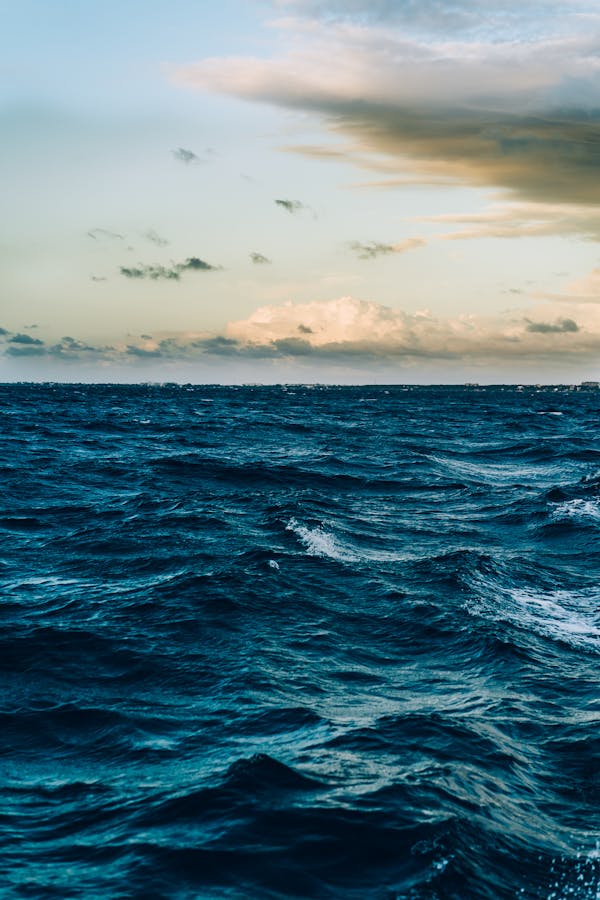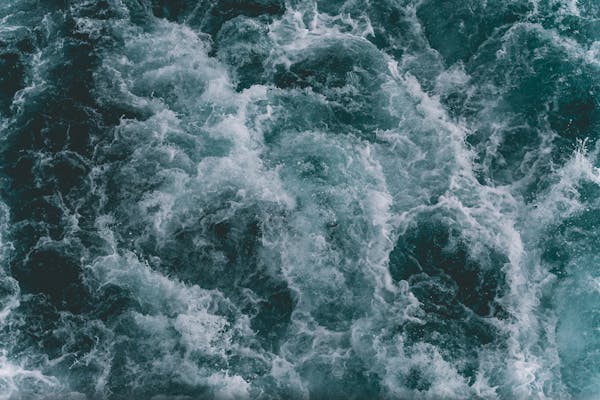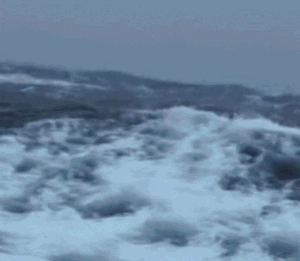 Online Scuba Lessons |
 Online Nitrox Lessons |
Heavy Weather
Scuba Diving Dive Boats



Sooner or later everyone who spends time on or in
the ocean is going to get a taste of what the old salts referred
to as "Heavy Weather". Defining it is another story
entirely. The term has a special significance for me, as an
instructor and Dive Master, because the conditions it describes
can be so varied, and their consequences for my divers.
The definition of "heavy weather" for dive boats
is really based on weather considerations for safe diving, not
just safe boating. It is not about boat handling skills,
"guts", or the seaworthiness and strength of the boat in the
face of storm, nor should it be based on how tightly the charter
schedule is booked. It is about the safety of my divers, many of whom
are students. The boats that we use are much tougher than
we are! With that in mind, heavy weather exists any time
the sea or weather conditions pose an unusual hazard to
divers. That's anytime there are adverse sea conditions in
evidence, likely, or expected for the duration of the time
divers are in the water. This has to include wind against
current situations, wave or swell conditions, strong surge in
sheltered areas, and swift surface or bottom current. As a
dive master, I have to make the assessment for the standpoint of
a diver in the water. Also, the ability of the diver, the
diver's recent experience, and weather or not I feel confident
that, if needs be, I could make a successful rescue. The old saying that the boat is stronger than the
crew is doubly true for divers. Not only is the dive
master charged with a higher responsibility than just getting
the divers to the dive site in one piece, but divers are
particularly vulnerable to injury even in relatively moderate
boating weather. For instance, a ride that's likely to
turn everyone but the hardiest aboard, a delicate pea green can
be easy on the boat, but a poor prelude to safe diving. Seasickness is terribly debilitating, as anyone
who's ever been there will be glad to tell you. It is said
that the first day, you are afraid you're going to die.
The second day you are afraid that you might live. Worse
than that, it is an extremely dehydrating condition. As a
result, it not only decreases the diver's ability to function,
but also increases the risk of decompression sickness and
hypothermia. It is important for dive masters to remember that
many divers are just not comfortable on boats, and a day's
seasickness is no recommendation for altering the opinion.
It's even worse for students who are a bit anxious about dives.
Seasickness aside, the effect of even "light"
heavy weather on the sea itself is a source for real
concern. Waves build up, as we know, from the action of
the wind over the sea's surface, forming breakers as they
approach shallower water. While we are obviously not going
to be diving in heavy surf, the swells from an offshore storm,
augmented by local winds, can be very dangerous to divers on the
deck of the boat, or even deadly to divers in the water. Divers need to exercise special attention to tank
and gear management when the weather gets rough. Gear can
get washed over board. tanks falling, sliding, or rolling
can lead to severe injuries. The action of the boat can
also lead to problems for divers gearing up who are thrown off
balance while wearing weights and a tank. A good rule to
follow is to make sure that fins are put on at the exit point,
not before. Stay close to your buddy and stay seated until
it's your turn at the gate. A simple miscue can turn into
a disastrous chain reaction. Even more serious problems arise when divers are
finished with the dive and boarding the boat. boarding
ladders become nightmares when the boat is pitching up and down
and back and forth. It is often the weight of the diver
that stabilizes the ladder. As a result, a diver who
misses the grab is likely to get smacked. Fixed platforms
have their hazards too. An ill timed grab to the platform
can result in the platform coming down on top of the diver. Another, problem of heavy swells is one that most
divers would never give a second thought. A large wave
passing overhead creates a rapid change in depth and at the
diver's current depth. Think about it - If a diver is at
80 feet and the surface has a 10 foot swell - the diver is at 80
feet, 90 feet, 80 feet, 90 feet, etc. This has the effect
of "pounding" the nitrogen into the body, which as we know,
creates several other problems. Also, buoyancy control can
be lost very easily, especially at shallower depths where the
physics changes of 10 feet are more drastic. Fortunately, most if the dive trips have been
good, if no excellent, weather. but there have been a few
over the years, that I've had to abort the planned dive site
because of the sea state. Once, in San carlos, I aborted a
trip to the wrecks because of heavy swells. All of the
divers understood and respected my decision save one. This
guy was so irritated at me that he hasn't been on a trip since
then. But...He is still alive. Try to remember that the dive master has that
title because of his or her training and experience. And
that there are a lot more things to consider when selecting a
dive site for safe diving. Dive ya later...
Bwana
![]()